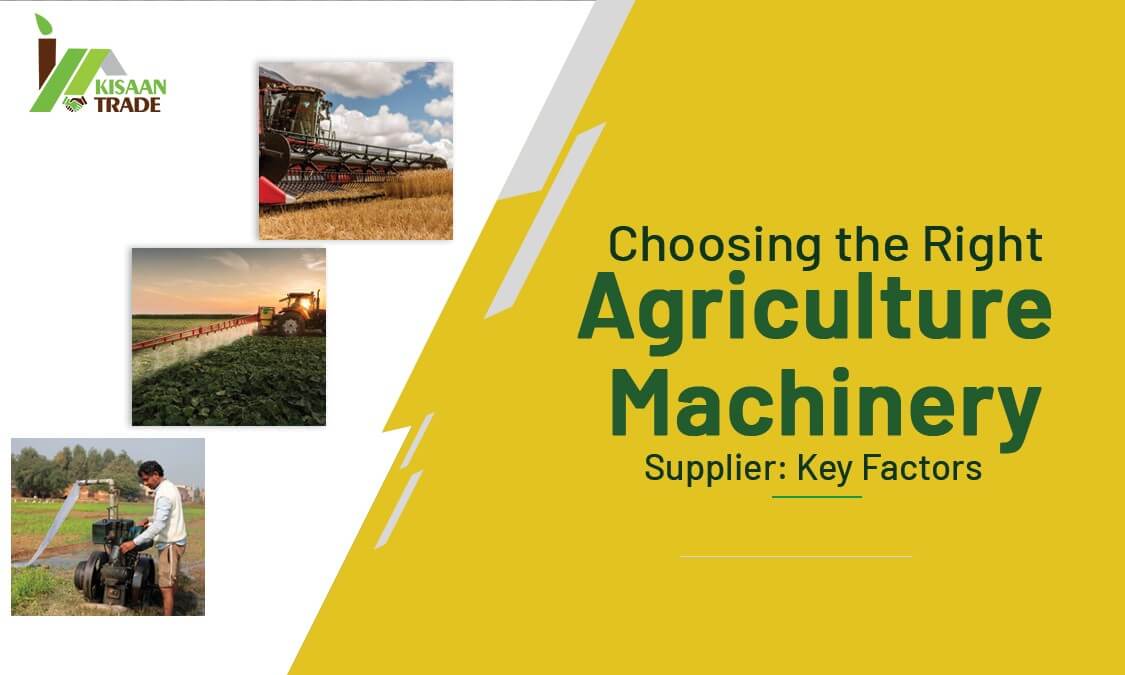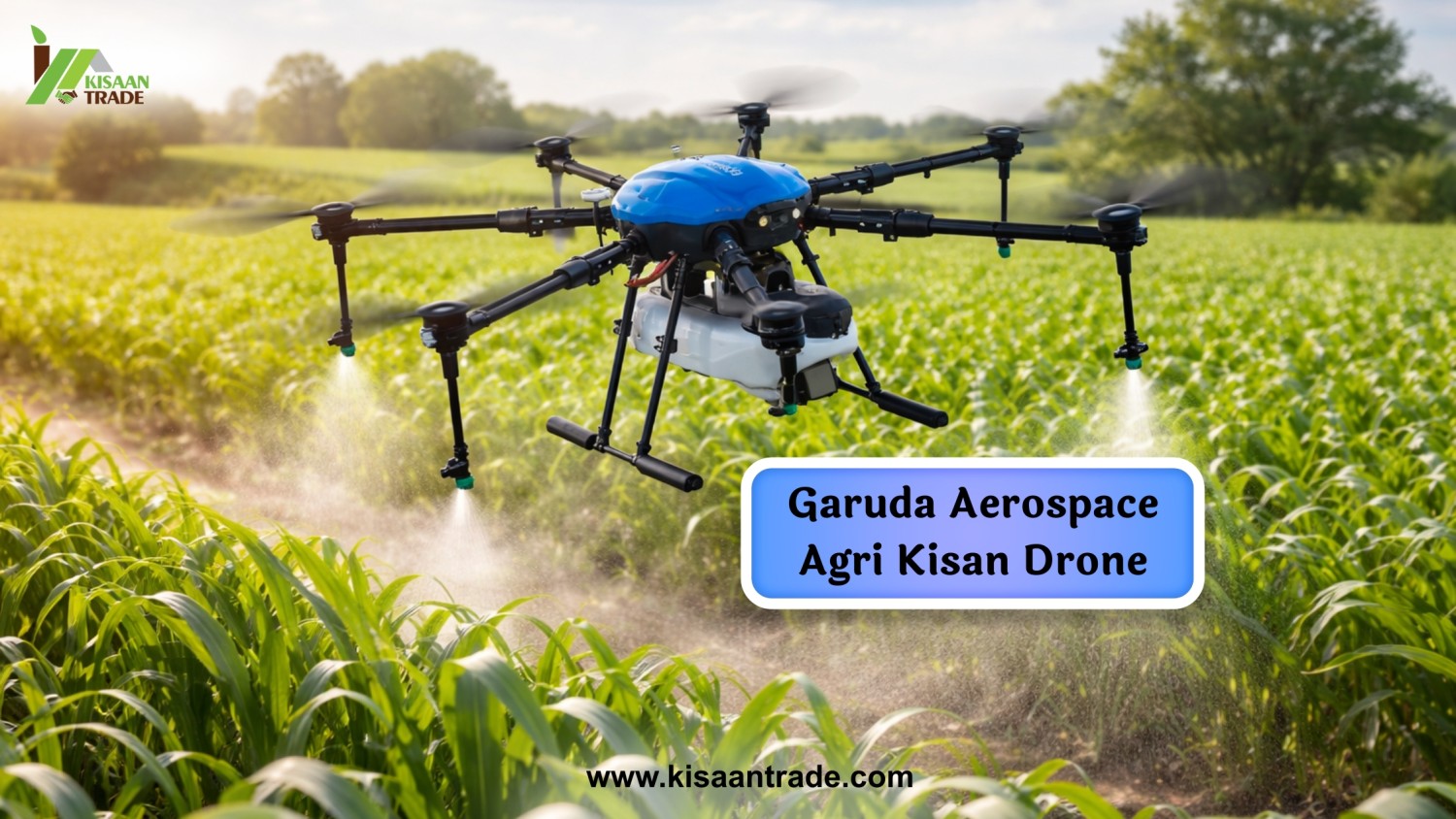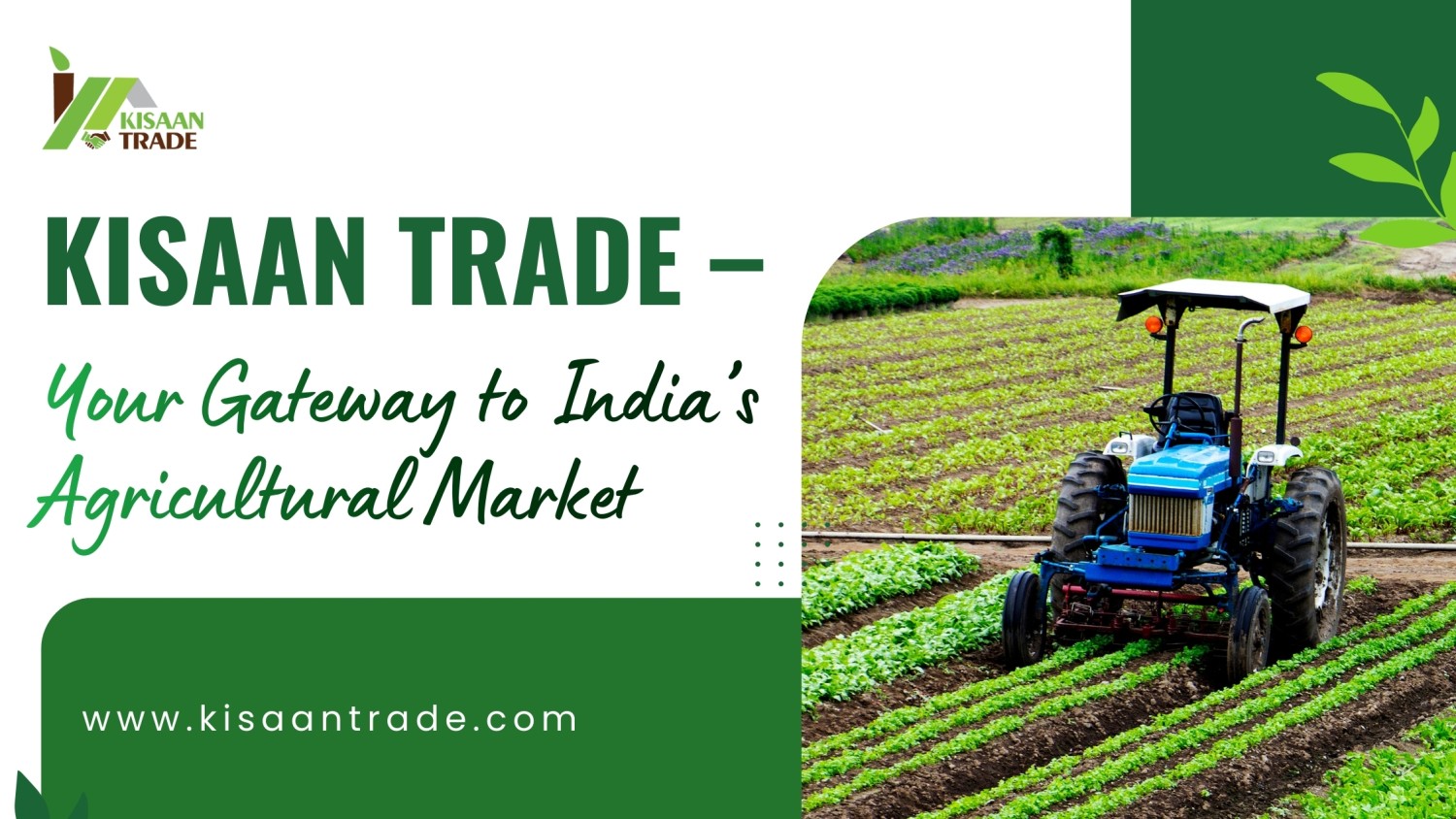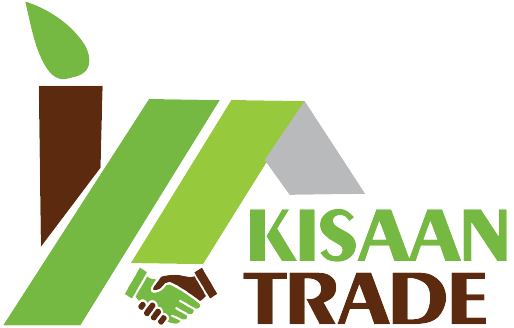Choosing the Right Agriculture Machinery Supplier - Key Factors

Agriculture has been the backbone of human civilization for thousands of years. It has evolved from rudimentary agricultural practices to a highly mechanized and technologically advanced industry. One of the important elements in this transformation is the machinery used in agriculture. Modern agricultural machinery has significantly improved productivity, reduced labor costs and increased the efficiency of agricultural operations. To harness the full potential of these benefits, it is essential to select the right farm machinery supplier. We will explore the key factors that should be considered when selecting a supplier for your agricultural machinery needs.
Credibility and Reputation
The first and most important factor to consider when deciding on an agricultural machinery supplier is their credibility and reputation in the industry. A supplier with a good track record is more likely to provide you with high quality machinery and excellent customer service. You can assess the reliability of a supplier by checking their history, reading customer reviews, and asking for references from other farmers or agribusinesses who have used their services.
Look for suppliers that have been in the industry for a significant period of time and have a history of delivering reliable machinery that stands the test of time. A reliable supplier will also provide good after-sales support, including spare parts and maintenance services, ensuring that your investment is well protected.
When assessing a supplier's reputation, consider the following factors:
- Their history in the agricultural machinery industry.
- Number of satisfied customers.
- Any industry awards or certifications they may have received.
- Their commitment to ethical business practices and sustainability.
- A supplier with a strong reputation will not only provide you with quality machinery, but will also be a reliable partner in your farming journey.
Product Range
Farm machinery includes a wide range of equipment, from tractors and harvesters to plows and irrigation systems. The supplier you choose should offer a diverse product line to meet your specific needs. It is important to consider both your current and future needs when assessing a supplier's product line.
Here are some key considerations when evaluating a product category:
Specific needs of your farm: Different types of farming require different machinery. Determine what type of machinery is necessary for your specific crop or livestock production.
Expansion Plans: If you have plans to expand your farming operations, consider a supplier that can provide machinery to aid your growth.
Technology and Innovation: Look for suppliers that offer products featuring the latest advances in agricultural technology. Modern machinery is often more efficient, environmentally friendly and cost-effective. It is essential to remain competitive by incorporating the latest technological innovations into your farming practices.
Versatility: Some machinery can be used for multiple purposes, which can be a cost-effective option. For example, a tractor with different implements can perform tasks such as ploughing, sowing, and harvesting.
Having a supplier with a comprehensive and technologically advanced product range ensures that you have access to the right equipment for the job, helping you achieve your farming goals efficiently.
Customer Support
Customer support is an important aspect of your relationship with an agricultural machinery supplier. The level of support they provide can make a significant difference to your overall experience. Consider the following when assessing a supplier's customer support:
A. Training: Does the supplier provide training for operation and maintenance of machinery? Proper training can reduce the risk of accidents and equipment damage. Training is especially important if you have employees who will operate machinery.
B. Availability of Spare Parts: Make sure that the supplier can easily make spare parts available for the machinery it supplies. Downtime due to unavailability of spare parts can be costly and disrupt your operations.
C. Repairs and Maintenance Services: Check if the supplier offers maintenance and repair services, and if so, inquire about their response time and expertise in handling repairs. Reliable maintenance services can extend the lifespan of your equipment and reduce downtime.
D. Technical Support: A supplier with a responsive technical support team can help resolve any issues or concerns promptly, minimizing disruption to your operations. It is important to have a partner that can provide support when you encounter technical challenges.
Effective customer support can save you time, money and headaches, making it an important factor to consider when choosing an agricultural machinery supplier.
Pricing and Financing Options
The cost of farm machinery can vary greatly depending on factors such as brand, features, and technology. It is important to consider your budget and financing options when choosing a supplier. While you should aim to get the best value for your investment, it is also essential to avoid compromising quality to save money.
Keep the following in mind when evaluating pricing and financing options:
Budget Considerations: Determine your budget for machinery purchases. Be realistic about what you can afford, taking into account not only the initial purchase price but also ongoing costs like maintenance and fuel.
Cost-Benefit Analysis: Assess the long-term value of machinery. If the machinery offers better efficiency, lower operating costs and longer lifespan, a slightly higher upfront cost may be justified.
Financing Options: Some suppliers may offer financing options, such as leasing or flexible payment plans, which can be beneficial if you are on a budget. Evaluate these options carefully to determine what best suits your financial situation and long-term goals.
Total Cost of Ownership: Consider not only the purchase price but also the total cost of ownership, including maintenance, fuel, and potential repair expenses throughout the lifetime of the machinery.
Pricing is an important factor in your decision-making process, but it must be balanced with the long-term value and quality of the machinery. Remember that investing in high quality equipment can save costs and increase profitability in the long run.
Warranty and Product Guarantee
Warranties and product guarantees provide an additional layer of protection for your investment. When selecting a farm machinery supplier, inquire about the warranty offered on their products. A strong warranty can save you money on potential repairs or replacement in the event of manufacturing defects.
Read the warranty terms carefully and understand what is covered, the duration of coverage and any conditions or limitations. Suppliers who back their products with strong warranties demonstrate their confidence in the quality and reliability of their machinery.
Here are some key points to consider regarding warranties and guarantees:
Duration: Check the length of the warranty period. Longer warranties provide more extended protection for your investment.
Coverage: Understand what the warranty covers. This may involve specific components, workmanship, or some type of damage.
Exclusions: Be aware of any exclusions or conditions that may void the warranty. For example, using machinery outside the recommended guidelines may void the warranty.
Support and Claims Process: Familiarize yourself with the process for making warranty claims. A supplier with a straightforward and efficient claims process can save you time and hassle.
A strong warranty can provide peace of mind and financial security, making it an important aspect of your decision-making process.
Compatibility and Integration
Agriculture today often involves the use of a variety of machinery and technology systems, such as GPS-guided tractors, precision planting equipment, and remote monitoring systems. It is important to select a supplier whose machinery can integrate seamlessly with your existing equipment and technology infrastructure.
Compatibility and integration can increase the overall efficiency of your farming operations, allowing for better data collection, analysis, and decision-making. Discuss these integration options with potential suppliers and make sure they fit your farm's specific needs.
When considering compatibility and integration, keep the following factors in mind:
Interoperability: Make sure the machinery you choose can communicate and work with other equipment and software on your farm. This is especially important for precision farming and data management.
Data Transfer: Evaluate the ease and efficiency of data transfer between different systems. Smooth data transfer is critical for real-time decision-making and optimizing farming practices.
Training and Support: Ask suppliers about the level of training and support they provide for integrating their machinery with your existing systems. Proper training can prevent integration challenges.
Efficient integration of machinery and technology can lead to better crop management, resource utilization and overall productivity on your farm.
Environmental Matters
Sustainable farming practices have gained significant importance in recent years. As the global population grows, there is increasing pressure to produce more food while reducing environmental impact. As such, it is important to consider the environmental sustainability of the machinery you choose.
Many suppliers now offer environmentally friendly options, such as low emissions, fuel efficiency and precision farming equipment that reduce the use of resources such as water and fertilizer. Here are some environmental factors to consider:
Emissions: Choose low-emission machinery to reduce your farm's carbon footprint and comply with environmental regulations.
Energy Efficiency: Choose appliances that are energy-efficient to reduce operating costs and conserve resources.
Precision Farming: Consider machinery equipped with precision agriculture technology, such as GPS-guided systems, that can help you optimize planting, fertilizer and irrigation, reducing waste and environmental impact.
Sustainable Practices: Some suppliers may have a commitment to sustainable and ethical manufacturing practices. Supporting such suppliers may be in line with your environmental values.
Choosing machinery with a low environmental footprint not only benefits the environment, but can also result in cost savings and improve the public perception of your farm. Sustainable practices are becoming essential for the long-term viability of agriculture.
Local Availability and Service Center
The proximity of the supplier's service centers and distribution network to your farm is a practical consideration. Having a local service center and easy access to technical support can significantly reduce downtime in case of equipment related issues or breakdowns. Suppliers with a strong local presence can provide more timely and cost-effective solutions to problems.
When evaluating a supplier's local availability, consider the following:
Distance: Assess how close the supplier's service centers and delivery networks are to your farm. Proximity can mean quicker response times in an emergency.
Availability of Spare Parts: Check if the supplier has stocked spare parts in local warehouses to ensure quick replacement when needed.
Response Time: Inquire about the supplier's average response time for on-site support. A supplier with quick response can minimize disruptions to your operations.
Reputation in The Area: Consider the supplier's reputation in your local farming community. A well-known local supplier is more likely to understand and meet your specific requirements.
Local support and service centers can be a lifesaver when you encounter unexpected issues or breakdowns, helping you keep your farm running smoothly.
Test and Demo Opportunities
Before making significant investments in agricultural machinery, it is advisable to test the equipment and observe its operation if possible. Many suppliers offer the opportunity to access on-farm demonstration or test units. These opportunities can help you better understand the performance, ease of operation and suitability of machinery for your specific farming needs.
Take advantage of test and demo opportunities to gain practical experience with the equipment and evaluate its performance in real-world conditions. Here are some considerations when participating in tests and demos:
Practical Experience: Actively participate in demos to operate the machinery and directly evaluate its performance.
Performance Evaluation: Focus on factors like speed, fuel efficiency, ease of use, and quality of results.
Suitability: Evaluate how well the machinery matches your specific farming practices and needs.
Compare Options: If possible, test multiple brands or models to make an informed comparison before making a decision.
Tests and demos can provide valuable insights that go beyond specifications and brochures, helping you select the machinery that best matches your farming goals.
References and Recommendations
One of the most reliable ways to assess the suitability of a supplier is to ask for references and recommendations from fellow farmers or agribusinesses in your area. They can provide valuable insights based on their experiences with a particular supplier. Recommendations from trusted sources can help you make informed decisions and avoid potential pitfalls.
Here are some steps to consider when asking for references and referrals:
Ask For References: Contact the supplier and request references from other customers in your area who have purchased the same or similar machinery.
Networking: Connect with other farmers through farm associations, forums, and events to gather referrals.
Personal Visits: If possible, visit other farms that use machinery from the supplier you are considering. Seeing equipment in action and talking to farm owners can provide valuable information.
Online Reviews: Find online reviews and testimonials from other farmers. Keep in mind that online reviews cannot always provide the complete picture, so it is necessary to supplement them with direct references.
Recommendations from people with first-hand experience can provide unique insight into a supplier's reliability, product quality, and customer service.
Conclusion
Choosing the right farm machinery supplier is an important decision that can have a significant impact on the success of your farming operations. By carefully considering the key factors outlined in this guide, you can make an informed choice that suits your farm's specific needs, goals, and budget. Remember that a reliable and reputable supplier will not only provide high quality machinery, but will also provide excellent customer support, which will ultimately contribute to the efficiency and sustainability of your farming efforts.
Whether you are a small-scale farmer or a large agricultural enterprise, the right supplier can be a valuable partner in your journey towards greater productivity and success in the agriculture industry. Supplier choice is not just about acquiring equipment; It's about building a partnership that can aid your farming operations in the years to come. Make your decision wisely, and your farm will enjoy the benefits of efficient and effective machinery for generations.








